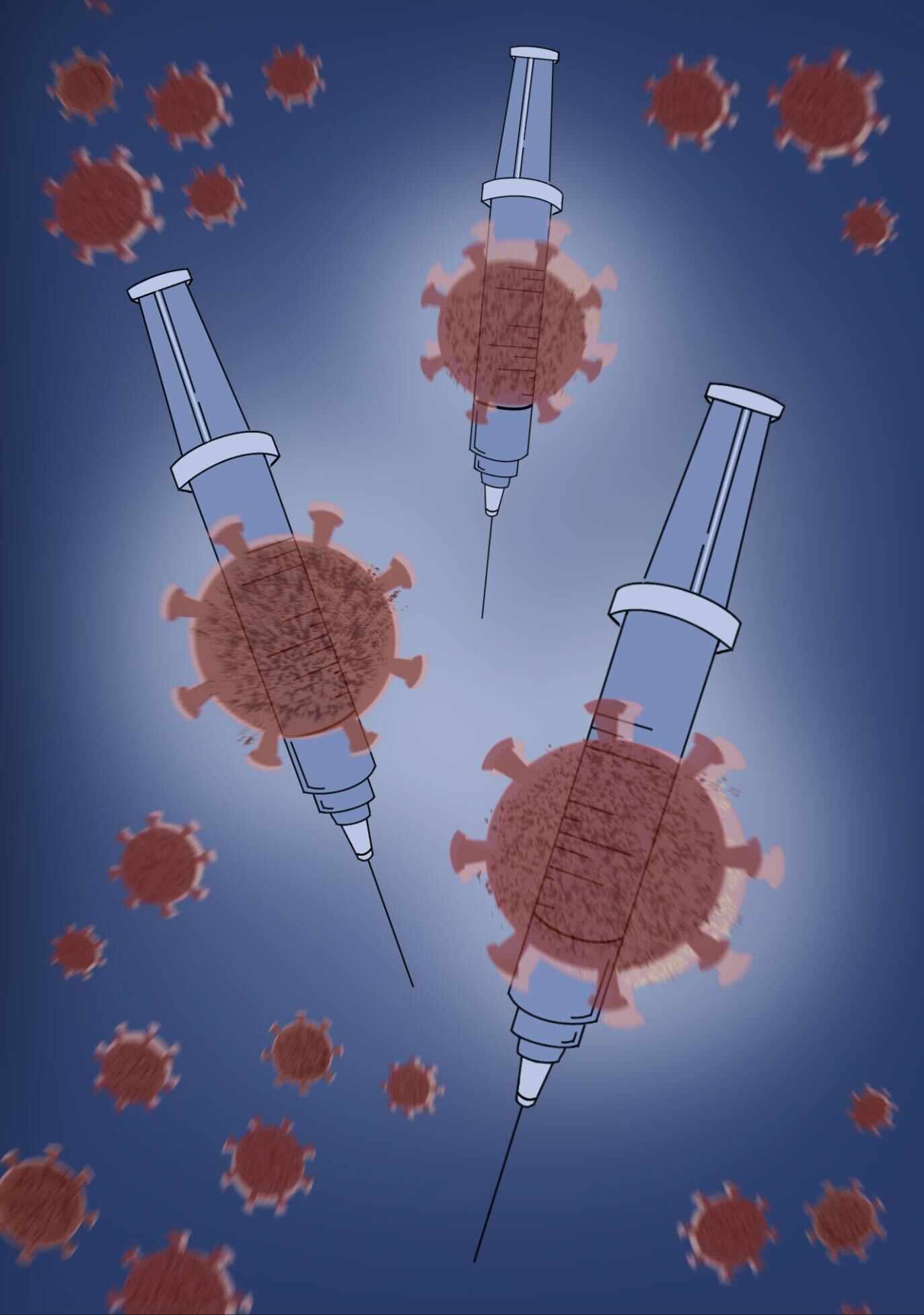Last week, the United States surpassed 700 confirmed measles cases. A majority of them have occurred in Texas. In addition to Texas, Ohio, Indiana, Kansas, Oklahoma and New Mexico have active outbreaks, and 19 other states have reported at least one case. About 97% of the cases have been in unvaccinated patients and in those whose vaccination status is unknown.
Measles, also known as rubeola, is a highly contagious airborne disease caused by the measles virus. If one person nearby has measles, up to 9 out of 10 people near them will become infected. Its most common symptoms include high fever, cough, runny nose, conjunctivitis and rash, similar to other infectious diseases. However, it can cause serious health complications, such as pneumonia and encephalitis, especially in young children. It can erase the immune system’s memory of prior infections, rendering the body vulnerable to previously encountered pathogens. It can even lie dormant in the body for years and then reemerge, causing the deterioration of brain tissue.
In the current outbreak, the numbers are grim. Two children in Texas have died. An adult in New Mexico has died. Fifty-eight Texans have been hospitalized. Scientists fear that the U.S. is headed toward an epidemic.
Yet the solution is simple: vaccination. In communities with vaccination rates above 95%, measles outbreaks do not occur. After the first measles vaccine was developed in the 1960s, measles was eliminated in multiple countries, including in the U.S. in 2000. Nowadays, the measles, mumps and rubella (MMR) vaccine is administered to children in two doses. It is considered 97% effective at preventing measles, and protection is lifelong.
Vaccines are safe, reliable and effective. During the COVID-19 pandemic, vaccines prevented 14.4 million deaths between December 2020 and 2021. The polio vaccine led to the eradication of the devastating disease from the U.S. in 1979. Smallpox was officially eradicated worldwide in 1980. But despite vaccines’ extensive track record, more than 9 million children in the U.S. are susceptible to measles—9 million American children are unvaccinated.
Vaccination rates have been dropping since 2020. The trend is fueled by vaccine hesitancy and anti-vaccination sentiments—beliefs that have now become mainstream. From the state to federal levels, vaccine hesitancy is being normalized. Since 2023, Mississippi school children have been exempt from vaccines on religious grounds. In 2024, Louisiana forbade public health workers from promoting the COVID-19, influenza or mpox vaccines. Now, in 2025, the current administration is slashing funding to vaccine research and immunization programs, and Secretary of Health and Human Services Robert F. Kennedy Jr. is actively promoting vaccine hesitancy.
Rather than encouraging MMR vaccination in the midst of the outbreaks, Kennedy has promoted alternative therapies and fringe theories. His public endorsement of a supplement, vitamin A, for measles protection has led to Texan children showing up to the hospital with liver damage, as high levels of vitamin A are toxic to the body. There is not even evidence that vitamin A can protect against measles, yet Kennedy has purported that it can lead to “almost miraculous and instantaneous recovery.” Meanwhile, he has recruited a vaccine skeptic, David Geier, to study the long-debunked link between vaccines and autism spectrum disorder (ASD). For years, Geier has attempted to tie vaccine ingredients to ASD, and now, Kennedy has given him a national stage for his unreliable results and discredited conclusions.
Vitamin A is not a cure for measles—vitamins cannot cure any infectious disease. Vaccines cannot cause ASD—countless doctors and researchers have debunked the claim. By disregarding science, Kennedy and the current administration are recklessly endangering the lives of children, older adults and those who are immunocompromised.
With declining vaccination rates, measles is not the only infectious disease that will make a comeback in the U.S. Cases of whooping cough, also known as pertussis, are already on the rise. Polio, which continues to circulate in Pakistan and Afghanistan, is still a risk. Furthermore, vaccine hesitancy will impair public health responses to future infectious threats. An outbreak of avian influenza has been occurring since March 2024, affecting wild birds, poultry, cattle and even humans. The longer it continues to spread, the greater its potential is for human-to-human transmission. In the case of human-to-human transmission, without widespread vaccination, avian influenza could quickly become a deadly pandemic.
Vaccines save lives. The current measles outbreak is dangerous, but its effects can be mitigated. The U.S. needs to double down on showing Americans the safety and efficacy of vaccines—not cast doubt on a historically and scientifically-proven solution for combating infectious diseases.



